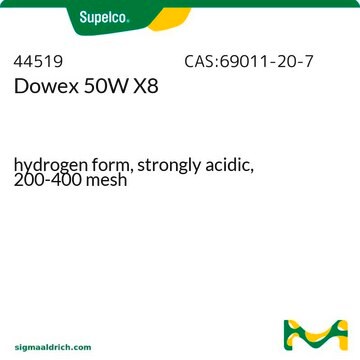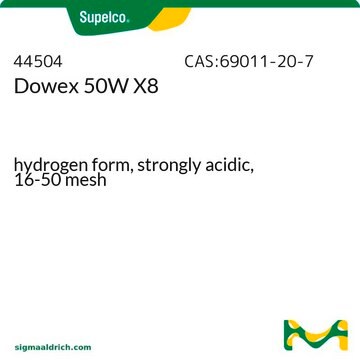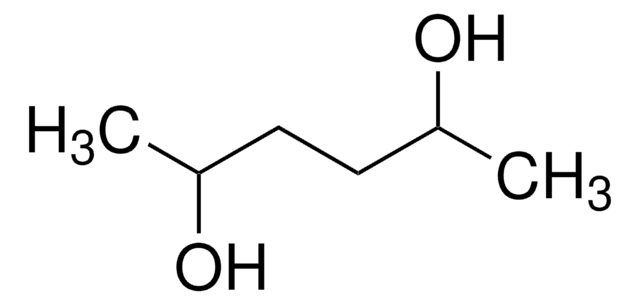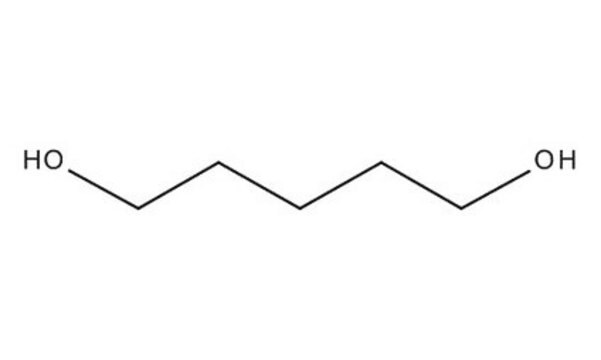240117
1,6-Hexanediol
99%
Synonym(s):
Hexamethylene glycol
About This Item
Recommended Products
vapor pressure
0.53 mmHg ( 20 °C)
Quality Level
Assay
99%
autoignition temp.
608 °F
expl. lim.
16 %
bp
250 °C (lit.)
mp
38-42 °C (lit.)
SMILES string
OCCCCCCO
InChI
1S/C6H14O2/c7-5-3-1-2-4-6-8/h7-8H,1-6H2
InChI key
XXMIOPMDWAUFGU-UHFFFAOYSA-N
Looking for similar products? Visit Product Comparison Guide
General description
Application
- a structure-directing agent for the synthesis of ZSM-5 zeolite
- a solvent for titanium tetra-isopropoxide to form titanium oxide (TiO2) nanocrystals
- a phase change material in combination with lauric acid for thermal energy storage applications
Storage Class Code
11 - Combustible Solids
WGK
WGK 1
Flash Point(F)
215.6 °F - closed cup
Flash Point(C)
102 °C - closed cup
Personal Protective Equipment
Regulatory Listings
Regulatory Listings are mainly provided for chemical products. Only limited information can be provided here for non-chemical products. No entry means none of the components are listed. It is the user’s obligation to ensure the safe and legal use of the product.
JAN Code
240117-VAR:
240117-BULK:
240117-2G:
240117-50G:
Choose from one of the most recent versions:
Already Own This Product?
Find documentation for the products that you have recently purchased in the Document Library.
Customers Also Viewed
Our team of scientists has experience in all areas of research including Life Science, Material Science, Chemical Synthesis, Chromatography, Analytical and many others.
Contact Technical Service











